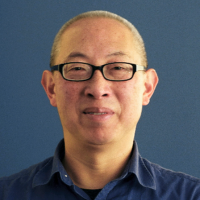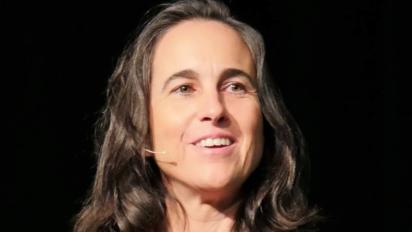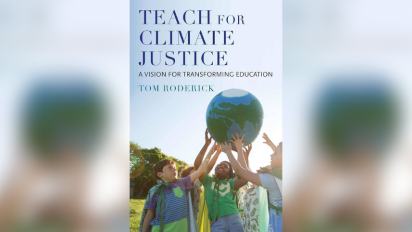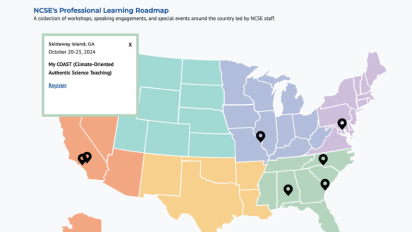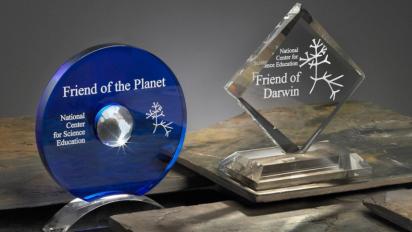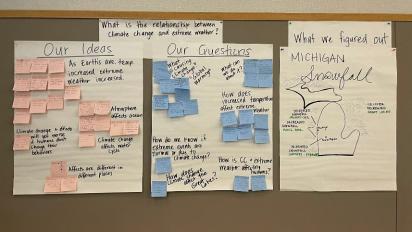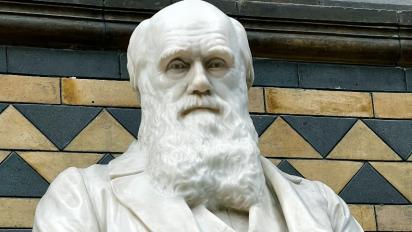Forty-eight states in five years
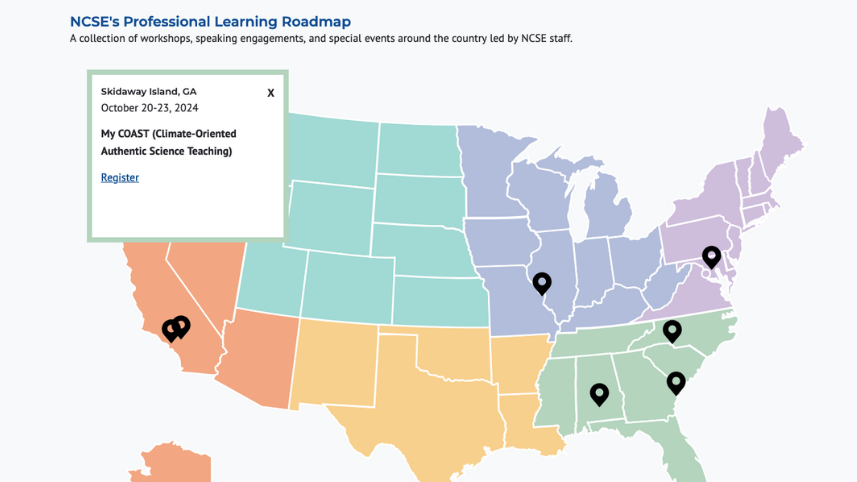
That is one of the many ambitious goals for NCSE’s new professional development initiative.
NCSE is planning to provide opportunities for science teachers across the entire continental United States to engage in face-to-face, hands-on professional development led by NCSE staff, according to NCSE Executive Director Amanda L. Townley. “We value teachers’ time and ability to travel and therefore want to take our work to them, in their communities, so they can learn with us in the local context of what matters to them, their community, and their students,” Townley said.
The aim, she added, is “to make professional learning on scientific topics like climate change, evolution, and the nature of science accessible.”
The focus of the professional learning will be on teaching strategies and pedagogies that help students accurately assess misinformation and disinformation about these topics. The professional learning experiences will also leverage NCSE-created activities, including the recently unveiled Climate Change Story Shorts.
“We want to give teachers a toolkit to help them overcome student misconceptions in the science classroom,” NCSE Director of Education Lin Andrews explained.
NCSE’s Supporting Teachers program has released a new dynamic map that highlights this nationwide effort while also giving science teachers the chance to see if they can take advantage of upcoming opportunities in their community or region.
Already in 2024, NCSE has led professional development for teachers in seven states, at national and regional conferences, and at local school districts. NCSE has engaged in this work at the behest of individual teachers, such as Teacher Ambassador Jeff Grant, who organized the Climate of H.O.P.E. conference, and through collaborations with like-minded organizations, such as the National Association for Research in Science Teaching.
My COAST
Another result of a fruitful partnership is a planned four-day event on Skidaway Island, Georgia, coming up in October, 2024. NCSE’s My COAST (Climate-Oriented Authentic Science Teaching) is being developed in collaboration with the University of Georgia Marine Extension (MAREX) and Georgia Sea Grant, a federal-state partnership based at the University of Georgia that works to improve the environmental, social, and economic health of the Georgia coast through research, education and extension.The project is partially funded by the Justin Brooks Fisher Foundation.
Up to 30 science teachers from the region will have a chance to work directly with researchers in the field, examine issues — often exacerbated by climate change — facing coastal communities and habitats in Georgia, dig into solutions being considered and implemented, and plan how to present what they’ve learned to their students back home.
“It is our hope that teachers who at- tend My COAST will come away not only with a deeper understanding and appreciation of the intricacies of coastal Georgia … but more confident in their ability to lead these discussions ,” Townley said.”

